Imagine being able to read 1,000 pages of riveting myths, epics, and novellas—in an ancient language. Now imagine doing this in an introductory language course.
How is this possible?
The Ancient Language Institute (ALI) takes an intuitive, creative, and flexible approach to language acquisition. Whether our students are learning Latin, Attic Greek, or Koine Greek, we ensure that they not only master Latin or Greek – but feel engaged and inspired from day one. Our whole theory of success is built around a single idea: enjoyment. The sooner you begin to understand and enjoy content in the target language, the sooner you’ll be able to use it confidently. Say goodbye to mind-numbing grammar drills and declension tables. Step into the ancient world.
The ALI Creed
We believe ancient languages are vital and relevant today.
Why should people learn “dead” languages today unless they’re seminarians or hobbyists? Isn’t that a niche occupation?
We think everyone can benefit from learning an ancient language. It’s hard to overstate the impact of Greek and Latin on the modern world. We borrow so much from the Ancient Mediterranean in daily life that we’re not even conscious of it. You can’t write an essay, cast a ballot, visit your doctor, or read a novel without channeling the stories, ideas, and norms of ancient society—things that came down to us through Latin and Greek. Our academies, our legal institutions, and our notions of things like justice, goodness, and logic owe a huge debt to ancient languages.
Ancient languages expose you to the deep roots of our society, and they’re useful in any discipline. However, they’re also essential for mastering English. Depending on how you weight the vocabulary, some 30–70% of English comes from Latin and Greek. Armed with one of these older tongues, you’ll be able to identify roots and patterns, dramatically expand your English lexicon, and discern the rich imagery and context behind common words and phrases. Knowledge of an ancient language equips you to wield English fluidly and precisely.

Greek and Latin will be relevant for as long as the liberal arts are worth studying. Of course, you can always settle for translations, but they inevitably lose something—beauty, clarity, or wit. If you want to explore the underpinnings of the liberal arts, then knowing an ancient language is indispensable. There’s no substitute for reading Plato’s dialogues or the histories of Tacitus in the original. And this doesn’t just apply to the texts of Ancient Greece or Rome: Until fairly recently, Latin was the universal medium of scientific communication. Galileo, Bacon, and Newton all published prolifically in Latin, as did their contemporaries.
We believe traditional ways of teaching Latin and Greek don’t work—and are boring.
Think back to your high school Spanish class—or French, or whatever foreign language you took. If you’re like most students, you pored over a fresh vocabulary list every week and strained to make sense of grammar tables. Subjunctive? Past progressive? You chanted new words and verb forms under your breath in the seconds before class, cramming just in case there was a pop quiz. You squirmed in your chair as you tried to form a correct sentence aloud—until the teacher cut you off, correcting your faulty syntax. If only you could remember all the little parts.
READ MORE: Classical Schools Are Not Really Classical
This is sometimes called the “grammar-translation method,” and until a few decades ago, it went virtually unchallenged in language teaching. Many modern language courses still draw heavily from this model. In Latin and Greek instruction, it holds near-total sway. If you’ve ever labored through the pages of Wheelock’s Latin or other popular textbooks, then you know how difficult and tedious this approach is. Despite overwhelming evidence that there are more fun and effective ways to master a language, educators keep using the same crusty formula.

How good is the traditional model at developing fluency? Pretty abysmal, according to decades of research by revered linguist Stephen Krashen and others. But you probably already guessed that based on your own experience. In the ordinary classroom, students are forced to learn grammar in the abstract, produce speech prematurely and under stress, and absorb content that’s bland and uninspiring. That’s a recipe for anxiety and monotony.
There’s another way, and ALI instructors have used it to help hundreds of students read and enjoy Latin and Greek at a level they’d only ever dreamed of.
We believe every student can excel using the right methods.
If the traditional approach is clunky, stressful, and soul-sappingly boring, what’s the alternative? We call it the natural method, because that’s exactly what it is. The natural method of language acquisition is so refreshingly simple, so blindingly intuitive, that you’ll wonder how it was ever overlooked. To explain it, we’ll introduce you to the two pillars of ALI’s philosophy: comprehensible input and active pedagogy.
Comprehensible input, an idea championed by Krashen, simply refers to content in the target language that the learner can make sense of. According to Krashen, we acquire a new language not by deliberately studying its components but by understanding messages. These messages should be just challenging enough to stretch our learning muscles without causing strain. When we also find the content interesting—which, for most of us, rules out grocery lists and contrived “sightseeing in Barcelona” narratives—then we can make rapid progress. Enjoyable comprehensible input enables fluency.
READ MORE: How Old Is Latin?
The natural method, also called the “natural approach,” is the sworn enemy of the grammar-translation approach. Not only is it backed by a formidable amount of research, but you can quickly see why it works. Think back to your first few years of life: How did you learn your native language? Probably not by memorizing charts and tables. You absorbed and understood meaningful communications, climbing a ladder of increasingly complex messages until you could rattle off your own sentences. Most of this process was unconscious.
ALI packs its courses with enjoyable comprehensible input, tailoring the curriculum to each student’s needs, interests, and availability. We help learners get into engaging texts right away, not toil over dry sentences manufactured for the classroom. We’ve consistently seen students thrive with this approach. We’ll put our money on the natural method any day.

Our other pillar is active pedagogy. This just means we aim to get students reading, writing, and speaking Latin or Greek as soon as possible. Course participants engage with instructors and peers over dynamic source material and shape their own learning process. We don’t waste precious time trying to teach grammar rules exhaustively or instill vocabulary through lists. Our students acquire new vocabulary by using interactive learning platforms, videos, and textbooks full of engrossing stories with accompanying imagery. As they see, hear, and write unfamiliar terms in Latin or Greek, they internalize them in the target language instead of having to memorize a translation of each term. The goal is to see a picture of a house and immediately think, “domus.” (The alternative, which sadly many language students are trained to do, is to see the picture of the house, think “house,” and then try to recall the Latin equivalent to the English word “house.”)
ALI’s vision is for every student to achieve fluency. If you’re attempting Latin or Greek for the first time, you’ll find our courses delightfully engaging. You might be surprised at how quickly you absorb the language while your brain is busy with rich, stimulating content. If you’re a repeat learner, a casualty of the grammar-translation method, we promise that this time around will be different. Our approach will redeem all those frustrating hours spent trying to digest Wheelock’s. Let ALI salve your language wounds and help you reach your goal: mastery of an ancient language.
The Ancient Language Institute exists to aid students in the language learning journey through online instruction, innovative curriculum, and accessible scholarship about the ancient world and its languages. Are you interested in learning an ancient language?




